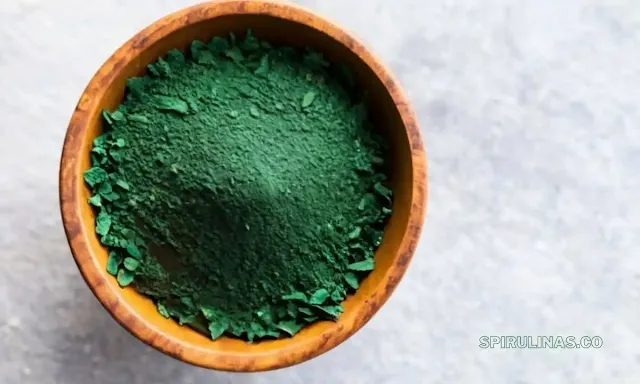How to Take Spirulina: Supplements, Powder, or Tablets?
How to Take Spirulina: Supplements, Powder, or Tablets?
Spirulina is a type of blue-green algae that is rich in nutrients and has several potential health benefits. It is often consumed as a dietary supplement to gain its nutritional and therapeutic properties. But how exactly should you take spirulina? This article will discuss the different forms in which spirulina is available and how to take each one effectively.
Forms of Spirulina
Spirulina supplements come in three main forms - powder, tablets, and capsules.
Spirulina Powder
Spirulina powder is the most basic and natural form. It consists of the dried and ground algae in a fine powder form. Spirulina powder has high concentrations of proteins, vitamins, minerals, and other phytonutrients. It is easy to add to smoothies, juices, homemade bars, or baked goods to get its rich nutritional profile.
Spirulina Tablets
Spirulina tablets are compressed powder pillet forms for easy consumption. They contain a standardized amount of spirulina powder in each tablet along with fillers, binders and other excipients needed for pill formulation. Tablets are more convenient than powder especially when traveling. However, the nutrients may not be as bioavailable as the raw powder form.
Spirulina Capsules
Similar to tablets, spirulina capsules also contain pre-measured spirulina in gelatin or vegetable capsule shells. They are easier to swallow than loose powder. Capsules are ideal for those who do not like the taste of spirulina or have trouble consuming it otherwise. The downside is lower nutrient bioavailability compared to the original powder form.
How to Take Spirulina
Here are some tips on how to take spirulina powder, tablets, or capsules effectively:
Spirulina Powder
- Start with 1/2 tsp and gradually increase the amount up to 1-2 tsp per day mixed in water, juice or food.
- Add to smoothies, yogurt, oatmeal or baked goods for extra nutrients and flavor.
- For better solubility and taste, let it soak for 5-10 mins before drinking.
Spirulina Tablets
- Follow dosage instructions on the label, usually 500mg to 2,000mg per day split into doses.
- Swallow whole with a full glass of water instead of chewing to avoid its unique taste.
- Take with or after meals for better digestion and absorption.
Spirulina Capsules
- Again, follow the recommended dosage on the bottle, usually 2-4 capsules daily.
- Swallow capsules whole with water instead of breaking or chewing them.
- For best results, take capsules consistently as part of a healthy diet and lifestyle.
Safety and Side Effects
Spirulina is generally safe for most people when taken orally and as directed. However, some may experience mild side effects like nausea, diarrhea, allergic reactions or headaches. Pregnant/nursing women and those with kidney or liver disease should consult a doctor before use. As with any supplement, it is advised to start with lower doses and gradually increase to assess personal tolerance.
Where to Buy Spirulina
High-quality spirulina supplements are widely available both online and in-stores. Look for brands that are certified organic andthird-party tested for purity and potency. Some reputable retailers include iHerb, Vitamin Shoppe, Swanson, and MetaNutra. Spirulina is also sold in many health food stores and pharmacies.
Nutritional Profile of Spirulina
Spirulina is packed with nutrients that are beneficial for health. Per 100 grams, it contains:
- Protein (60-70%): It is rich in all essential amino acids to support muscle growth and recovery.
- Beta-Carotene: Acts as an antioxidant and supports eye health and immunity.
- Iron: An important mineral for red blood cell formation and energy levels.
- Calcium: Good for bone health and muscle function.
- Magnesium: Vital for nerve and muscle function as well as energy production.
- B vitamins: Necessary co-factors for energy metabolism and production.
- Gamma-Linolenic Acid (GLA): An essential fatty acid with anti-inflammatory properties.
Potential Health Benefits of Spirulina
Due to its nutritional density and inherent compounds, spirulina may offer the following advantages:
- Weight management: Fills up quickly due to fiber and protein, and aids metabolism.
- Antioxidant support: Phytonutrients like phycocyanin act as antioxidants in the body.
- Immune function: Boosts immunity during illness and stress due to vitamin/minerals.
- Brain and nerve health: Omega-3s like GLA and B vitamins nourish the brain.
- Heart health: Lowers "bad" cholesterol, blood pressure and inflammatory markers.
- Skin and hair: Carotenoids nourish collagen and hydrate skin plus hair follicles.
- detoxification: Supports liver function through antioxidant and nutrient support.
Spirulina Recipes
To get creative with spirulina intake, try these recipes:
- Green smoothie: Blend spirulina powder with fruits, milk/yogurt, nut butter for fiber and antioxidants.
- Energy balls: Mix spirulina powder into no-bake granola balls or energy bite recipes for on-the-go snacks.
- Veggie burgers: Add spirulina to homemade veggie patties or burger mixins for color and essential aminos.
- Pancakes/waffles: Stir spirulina into batter for fiber-dense breakfasts with visual appeal.
- Guacamole/hummus: For extra vitamins without color/taste change, mix spirulina into popular dips.
Conclusion
In summary, spirulina is a nutritious cyanobacteria that can be consumed as powder, tablets, or capsules for its myriad benefits. Whichever form you choose, be sure to take the suggested dosage, mix it properly, and continue regularly for best results. Always consult your healthcare provider before starting any supplement regimen, especially if you have medical conditions.

